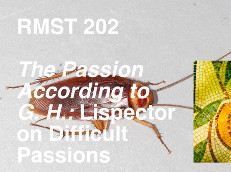To me, the book read as if a philosopher was attempting to merge a book of existential meditations with a series of poems into a long-form fiction novel. In one sense, trying to decipher some of the more abstract passages, the journey read exactly like that. I’d begin to pick it apart in a more logical sense, searching for the p’s and q’s beneath the words, before realizing that it was underscored by a more mystical thought process, and dig through the imagery of the line, before circling back and comparing to the “story” as a whole. The whole process of this left me a bit winded, to be honest.
Along these ramblings and soul-searches, bits and pieces can be pulled out to illustrate how the philosophical slides into the poetic, and in many parts, the down-right strange and intense. Here are some of the more existential “proofs” I enjoyed, where there is an idea of logic underpinning the sentence, and it builds to a realizing point.
“courage isn’t being alive, knowing that you’re alive is courage”
“a world fully alive has the power of a hell”
“Experiencing that taste of the nothing was my damnation and my joyful terror.”
“When one is one’s own nucleus, one has no more deviations. ”
At points, these series of ideas, imagery and inner dialogue can push into really poetic and beautiful territory, where in few words, contrasts and ideas and given more clarity and power. Here are a few choice “poems”–to me some of the most beautiful lines–lines which could be sung:
“No longer even fear, no longer even fright.”
“Amidst the liquid din, our mouths were moving speaking, and in fact we only saw the moving mouths ”
“Neutral love. The neutral was whispering.”
Where it branches off truly into strange-land, the ideas are thrown at the reader like a toddler throwing paint at a wall, except the paint is full of grim imagery. Here the dialogue is reaching it’s boiling, climactic points, and the visceral wordplay accentuates that idea. These passages come together in intense and wierd passages that are pushing both the existential and the poetic into an omen of the realization to come.
“To build a possible soul — a soul whose head does not devour its own tail — the law commands us to keep only to what is disguisedly alive. And the law commands that, whoever eats of the unclean, must do so unawares”
“Hell is the mouth that bites and eats the living flesh with its blood, and the one being eaten howls with delight in his eye”
“The secret of my millennial trajectory of orgy and death and glory and thirst until I finally found what I had always had, and for that I had had to die first.”
Overall, I enjoyed the writing, but I read a bit about how the interplay with the language itself was very important in reading Lispector, so I wonder how some of it would have translated back into Portuguese.
Question: Was the monologue deliberately so drawn out so as to bring these ideas out in an abstract and natural light, or could it have been delivered more succinctly? Would it have had the same impact?

